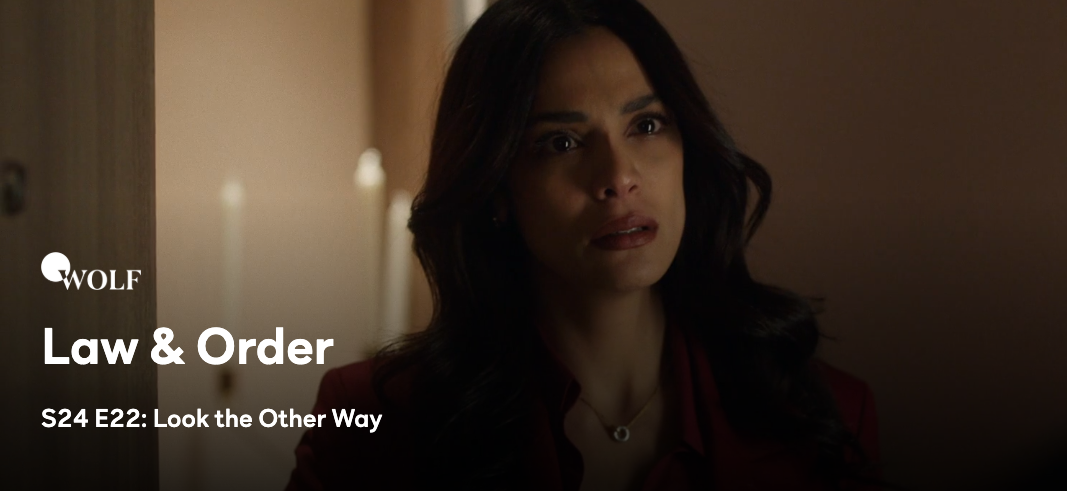
Law & Order on NBC -- the original Law & Order -- has pretty much since the day it debuted in 1990 excelled in confronting some of the toughest ethical issues in the prosecution of crime. Its focus on DAs, ADAs, and their assistants in the courtroom part of bringing criminals to justice could amount to a veritable MA in the ethics of criminal justice, and I'd wager that specific programs in this TV series have found their way into many a class in the John Jay College of Criminal Justice here in midtown Manhattan, a few blocks away from the Lincoln Center campus of Fordham University, where I've been a Professor (at the Bronx Rose Hill Campus) about the same number of years that Law & Order has been on the air, taking into account its eleven-year hiatus from 2010-2021.
[There will be spoilers ahead ...]
And the Season 22 finale of Law & Order that aired last night provided a fine example of that ethical probing, in this case the problem of (a) if you know for a fact that someone committed multiple brutal murders over the years, but (b) the evidence via which you know this is ruled non-admissible by the judge (either thick-headed, or brilliant, or anywhere in between), is it (c) right to bend the rules, to the point of doing whatever it takes to get the guilty party off the street and behind bars or worse?
It was clear that this episode would be morally gut-punching about 30 minutes into the story, the beginning of the "Order" part, when we learn that ADA Samantha ("Sam") Maroun's sister was years ago one of the victims of the killer who would be on trial. Executive ADA Nolan Price, who will be prosecuting the case in court, wants Sam to have a minimal role in this prosecution, but of course she doesn't, and in her zeal to see the killer brought to justice she coaches a witness to make sure he gives a conclusive ID of the suspect. Nolan struggles with whether to let the defence attorney know. The DA Nick Baxter subtly advises Nolan to forget that he knows what Sam did, but after agonizing over what to do, Nolan plays by rules. This in turn also of course results in the arrogant smirking killer being found not guilty.
And things only get worse from there. Not only is killer found not guilty, he's soon shot dead. Nolan pays Sam a visit. He knocks on her door. She opens it. "Please tell me you had on nothing to do with this," Nolan says to her. Sam, looking stricken (as she has for most of this episode), slams the door in his face.
Now the question of whether to take justice into your own hands is one which has arisen not only in crime fiction but science fiction, where the question of whether it would be right for a time traveler to kill Hitler as a baby has been considered in more than one narrative. It would be hard to ipso facto say that course of action is out of the question, and the same is true about Sam and the man she knows brutally murdered her sister. But I have to say I think there's a good chance that Sam didn't do it. The parents of the latest victim were in court when their daughter's sicko killer was declared "not guilty," and they looked none too happy. Sam's stricken look at the end of the episode (especially fine acting by Odelya Halevi as Sam and Hugh Dancy as Nolan in this episode, by the way) could well have been not one of guilt for what she did, but one of anger at Nolan for thinking she might have murdered her sister's killer.
The good thing about season rather than series finales is we'll learn more in September, when Law & Order will return for its next season. Have a great summer!
See also Law & Order 22.16: The "Luigi Mangioni" Case

No comments:
Post a Comment